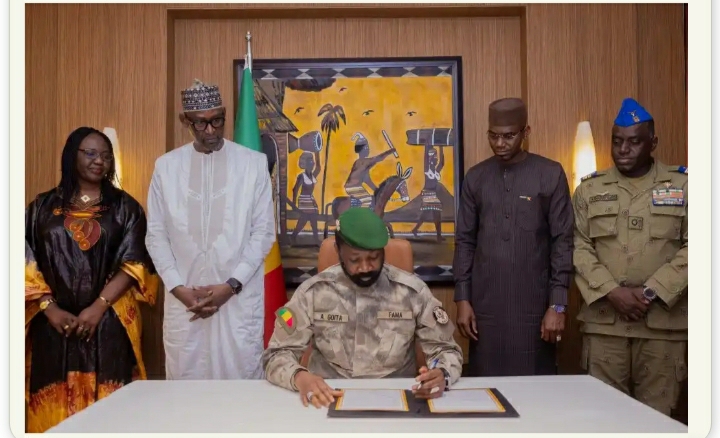Mali, Niger, Burkina Juntas Sign Mutual Defence Pact
The military leaders of Mali, Burkina Faso and Niger have signed a mutual defence pact to form the Alliance of Sahel States, a new regional bloc aimed at combating terrorism and protecting their sovereignty.
The Liptako-Gourma Charter, named after the border region where the three countries meet, was signed on Saturday in Bamako, the capital of Mali, by junta leader Assimi Goita, Burkina Faso’s transitional president Roch Kabore and Niger’s coup leader Mahamadou Djibo.
The charter establishes an “architecture of collective defence and mutual assistance for the benefit of our populations”, Goita posted on X, a social media platform formerly known as Twitter.
The charter also binds the signatories to assist one another, including militarily, in the event of an attack on any one of them, or to prevent or settle armed rebellions within their territories.
The Liptako-Gourma region has been ravaged by jihadist groups linked to Al Qaeda and the Islamic State group since 2012. The violence has killed thousands of people and displaced millions more.
The charter comes amid rising tensions between the Sahel states and their former colonial power France, which has been leading a counter-terrorism operation in the region since 2013.
Mali and Burkina Faso have expelled French troops from their soil, accusing them of meddling in their internal affairs and failing to curb the jihadist threat. Niger has also renounced several military cooperation agreements with France after its coup in July.
The West African regional bloc ECOWAS has threatened to intervene militarily in Niger over the coup, but Mali and Burkina Faso have warned that any such operation would be considered a “declaration of war” against them.
The charter also coincides with a resurgence of hostilities by predominantly Tuareg armed groups in northern Mali, who have been fighting for autonomy since 2012. The groups had signed a peace agreement with the Malian state in 2015, but it has largely been ignored by both sides.
The renewed fighting has put more pressure on Mali’s army and junta, which claim to have improved the security situation since they ousted former president Ibrahim Boubacar Keita in 2020.



